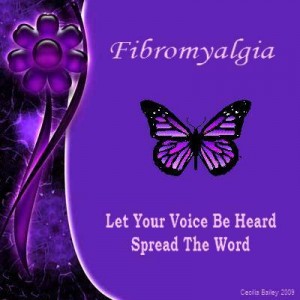Chronic pain symptoms may indicate fibromyalgia, or one of many other illnesses like pernicious anemia from vitamin B12 deficiency. If you constantly feel tired, bloated, nauseous, itchy, and wracked with crushing pain, you might be suffering from chronic fatigue, fibromyalgia, B12 deficiency, or all of the above…
Fibromyalgia
Fibromyalgia, or fibromyositis, is a condition that causes the sufferer indescribable pain and fatigue for no apparent reason. Doctors are unsure as to the exact cause of fibromyalgia, which is classified as an autoimmune disorder involving the brain’s overreaction to pain stimuli.
Symptoms of fibromyalgia include:
- Persistent muscular pain in at least 11 of 18 specific “pain points” on the body, including the neck and shoulders
- Pain described as stiffness, burning, throbbing
- Pain spreads from one tender spot to another
- Sleep problems caused by pain and restless legs syndrome
- Depression
- Gastrointestinal woes, like stomach pain, nausea, flatulence, irritable bowel syndrome (IBS), diarrhea, and constipation
- Bladder incontinence
- Dizziness
- Cognitive difficulties, “brain fog,” trouble concentrating
- Headaches
- Painful tingling sensations (“pins and needles”) and numbness in hands, feet, and ankles
Also read: How to Tell if Chronic Pain is Fibromyalgia: 18 Pressure Points
Pernicious anemia- Vitamin B12 deficiency
Pernicious anemia is an autoimmune disorder that prevents your body from producing intrinsic factor, a protein the body needs for vitamin B12 absorption. As a result, pernicious anemia patients often have dangerously low levels of vitamin B12- a nutrient involved in producing red blood cells, protecting the nervous system, lowering homocysteine levels, maintaining healthy cognitive skills, and establishing DNA synthesis. Vitamin B12 deficiency often overlaps with fibromyalgia, as gastrointestinal issues often inhibit vitamin B12 absorption.
Symptoms of vitamin B12 deficiency include:
- Chronic fatigue
- Depression
- Memory loss
- Difficulty concentrating
- “Brain fog”
- Anxiety
- Aggressiveness
- Hallucinations
- Sleep problems
- Shortness of breath
- Painful tingling and numbness in hands, feet, and ankles
- Sore tongue that is red and swollen
- Burning sensation in mouth and tongue
- Altered sense of taste
- Blurred vision
- Frequent clumsiness
- Difficulty walking without stumbling
- Difficulty balancing on one leg
Also read: Pernicious Anemia and B12 Deficiency- Historically Fatal, Still Formidable
Chronic fatigue syndrome (CFS)
Chronic fatigue syndrome shares comorbidity with fibromyalgia. Like fibromyalgia, the cause for CFS is still unexplained. Patients complaining of chronic fatigue receive diagnosis based on their symptoms.
Symptoms of chronic fatigue syndrome include:
- Persistent tiredness that is not caused by physical exertion, loss of sleep, or mental exhaustion
- Waking up fatigued, despite sleeping the whole night
- Pain in tender spots similar to the pain zones suffered by fibromyalgia patients, only less severe
Also read: Chronic Fatigue Syndrome and Fibromyalgia- Is there a Difference?
Myofascial pain syndrome
Myofascial pain is similar to fibromyalgia. While fibromyalgia patients experience soreness in “pain points,” sufferers of myofascial pain syndrome experience pain in “trigger points.” Also unlike fibromyalgia symptoms, myofascial pain does not spread from one point to another.
Symptoms of myofascial pain syndrome include:
- Small pain points that occur in tense muscles
- Trigger points that produce a muscular twitch when stimulated
- Pain points are tiny lumps about the size of your pinky’s fingernail.
Chronic headaches
Fibromyalgia sufferers often experience chronic headaches such as migraines, tension headaches, daily persistent headaches, or hemicrania continua. Scientists speculate that migraines happen in the same part of the brain as fibromyalgia triggers.
Symptoms of migraine headaches include:
- Throbbing head pain, typically on one side of the head
- Eye pain
- Migraine aura- visual disturbances, vertigo, hallucinations, speech slurring, loss of consciousness, or temporary paralysis
- Increased sensitivity to lights, sounds, and scents
- Nausea
- Uncontrolled vomiting
- Stomach cramps
- Diarrhea
- Dizziness
Multiple chemical sensitivity (MCS)
Exposure to chemicals may cause symptoms that mimic fibromyalgia, although researchers are uncertain if MCS is a physical response or a psychological reaction.
Symptoms of multiple chemical sensitivity include:
- Significantly lower threshold for chemical tolerance than normal
- Pain reaction consistent with various unrelated chemicals
- Sensitivity occurs in more than one organ of the body
- Chronic pain reaction that occurs repeatedly from exposure to certain chemicals
- Removing the chemical trigger ends pain symptoms
Depression
Most fibromyalgia patients have experienced clinical depression in the past, and a substantial (but lower) percentage suffers from chronic depression. Depression is also a common symptom of vitamin B12 deficiency. If depression stems from fibromyalgia pain, then it does not classify as major depression, but rather a secondary condition of fibromyalgia chronic pain syndrome.
Symptoms of major depression include:
- Spells of sadness that last for months
- Daily depression
- Difficulty concentrating
- Difficulty making decisions
- Agitation
- Anxiety
- Sleep problems like oversleeping or not sleeping enough
- Fatigue
- Feelings of low value or guilt
- Weight problems, either excessive weight gain or weight loss
- Contemplations of suicide
Also read: Vitamin Deficiencies can drive you Crazy- Seriously! Part 1
Hypothyroidism
Hypothyroidism (Hashimoto’s disease) is sometimes confused with fatigue associated with fibromyalgia or vitamin B12 deficiency anemia. As opposed to hyperthyroid disorder, where the thyroid gland produces too many hormones, hypothyroid disorder involves underproduction of hormones in the thyroid gland.
Symptoms of hypothyroidism include:
- Joint or muscle pain that hurts “all over”
- Cold hypersensitivity
- Depression
- Fatigue
- Constipation
- Weight gain
- Altered sense of taste
- Dry thick skin patches
Also read: Low B12 means Low Thyroid- Hypothyroidism and B12 Deficiency
Lupus
Autoimmune disease symptoms like lupus may occur at the same time as fibromyalgia or B12 deficiency, making it harder to diagnose. Conversely, patients with lupus often don’t realize that their vitamin B12 levels have dropped to a dangerous low until they start to suffer severe nerve damage.
Symptoms of lupus include:
- Fatigue
- Fever
- Skin lesions
- Joint pain
- Shortness of breath
- Headaches
- Memory loss
- “brain fog”
- Confusion
- Dry eyes
Also read: Lupus and Vitamin B12 Deficiency- What’s the Connection?
Lyme disease
Lyme disease is a bacterial infection spread by ticks. Because of delayed symptoms mimicking fibromyalgia, about 15-50% of fibromyalgia patients receives a misdiagnosis of Lyme disease, and is instructed to take strong antibiotics. A blood test sometimes excludes Lyme disease, but not always.
Symptoms of Lyme disease include:
- Itching all over the body
- Chills and fever
- Headaches
- Dizziness
- Muscular pain
- Stiff neck
- Numbness and tingling
- Partial paralysis
- Speech problems
Restless Legs Syndrome
A significant amount of fibromyalgia sufferers and pernicious anemia patients also experience restless legs syndrome at night. However, other causes of restless legs syndrome are kidney disorder, diabetes, Parkinson’s disease, or drugs.
Symptoms of restless legs syndrome include:
- Uneasy feeling in lower leg
- Creeping, crawling sensations
- Intense need to shake leg in order to ease symptoms
- Achiness that disappears with exercise
Read more about diseases that mimic fibromyalgia and vitamin B12 deficiency
Vitamin B12 Deficiency and Movement Disorders- How They Relate
If Vitamin B12 Deficiency Mimics Multiple Sclerosis, How do you tell the Difference?
Sore Burning Tongue, Dry Mouth, and Weird Tastes- What’s the Cause?
Type 2 Diabetes and Vitamin B12 Deficiency- Are you at Risk?
Sources:
Fibromyalgia- University of Maryland Medical Center
Images, from top:




